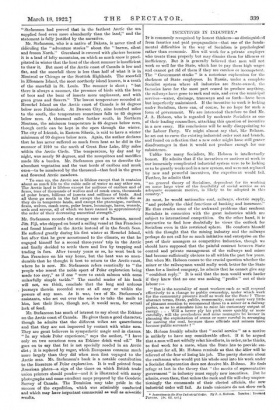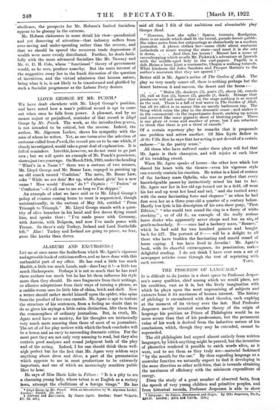INCENTIVES IN INDUSTRY:*
Pr is commonly recognized by honed thinkers—as distinguished from fanatics and paid propagandists—that one of the funda- mental difficulties in the way of Socialism is psychological rather than economic. Men will work for a private employer who treats them properly but may dismiss them for idleness or inefficiency. But it is generally believed that men will not work so well for the State, which has to pay them high wages and cannot get rid of them if they are careless or incompetent. The "Government stroke" is a notorious euphemism for the slackness of State employees. In Russia, under a complete Socialist system where all industries are State-owned, the factories have for the most part ceased to produce anything, the railways have gone to rack and ruin, and even the municipal services—water, drainage, tramways and so forth—have been but imperfectly maintained. If the incentive to work is lacking under Socialism, there can, of COU;SC, be no hope for such a form of govermnent. We are interested therefore to find Mr. J. A. Hobson, who is regarded by moderate Socialists as one of their leading counsellors, attacking this question of incentive in a new essay. His conclusions will be sadly disappointing to the Labour Party. We might almost say that, like Balsam, he set out to curse the existing industrial order root and branch, and found on reflection that a new order might have still graver disadvantages in that it would not produce enough for our subsistence.
Unlike too many Socialists, Mr. Hobson is intellectually honest. He admits that if the incentives or motives at work in our immensely complicated industrial system were to be lacking or to be greatly weakened in a new system, and were not replaced by new and powerful incentives, the experiment would fail. Further, he admits that "no general theory of Socialism, dependent for its working on some large view of the feasibility of social service as an adequate economic motive, is likely to be adopted in this country."
At most, he would nationalize coal, railways, electric supply, "and probably the chief functions of banking and insurance." He thus evades some of the awkward problems that confront Socialists in connexion with the great industries which are subject to international competition. On the other hand, it is instructive to find how doubtfully he views the outlook for Socialism even in this restricted sphere. He comforts himself with the thought that the mining industry and the railways perhaps do not call for so much initiative and enterprise on the part of their managers as competitive industries, though we should have supposed that the painful contrast between State control and private management of the railways and mines had become sufficiently obvious to all within the past few years. But when Mr. Hobson comes to the crucial question whether the miner or the railwayman would really work better for the State than for a limited company, he admits that he cannot give any "confident reply." It is said that the men would work harder if they knew that no one was making " profits " out of their labour :— " But is the mentality of most workers such as will respond effectively to a change to public ownership, under which work for the community presents itself as work for the State ? These abstract terms, State, public, community, must carry very little of pleasant emotion to recommend them to a miner or a railway porter, so as to stimulate him to raise his customary output of energy. . . . Will a hewer ply his pick more quickly or more carefully, will the overlookers and mine managers be keener in planning the exploitation of seams or more careful in arranging for moving the coal, because these officials and miners have become public servants " Mr. Hobson frankly admits that "social service" as a motive is unlikely to have any considerable effect. If it be argued that a man will not wilfully relax his efforts, in order, as he thinks, to find work for a mate, when the State has to provide em- ployment for all, Mr. Hobson reminds us that the idler will be relieved of -the fear 'of losing his job. The pretty rhetoric about the craftsman who would put his whole soul into his work under a Socialist dispensation does not deceive Mr. Hobson. He finds refuge at last in the theory that "the merits of representative government" in industry must supply new incentives. But he admits, even then, that unless the rank and file will obey unques- tioningly the commands of their elected officials, the new industrial order will fail. As trade unionists do not show such
• incentarobin the New adwatial Onto. By l. A. Hobson. London: Leonard
obedience, the prospects for Mr. Hobson's limited Socialism appear to be gloomy in the extreme.
Mr. Hobson elaborates in some detail his view—paradoxical and yet deserving of attention—that industry suffers from over-saving and under-spending rather than the reverse, and that we should be spared the recurrent trade depressions if wealth were more evenly distributed. Further, he deals faith- fully with the more advanced Socialists like Mr. Tawney and Mr. G. D. H. Cole, whose " functional " theory of government would, as he sees, produce anarchy. But the main interest of the suggestive essay lies in the frank discussion of the question of incentives, and the virtual admission that human nature, being what it is, is not likely to be transformed and glorified by such a Socialist programme as the Labour Party desires.



































 Previous page
Previous page